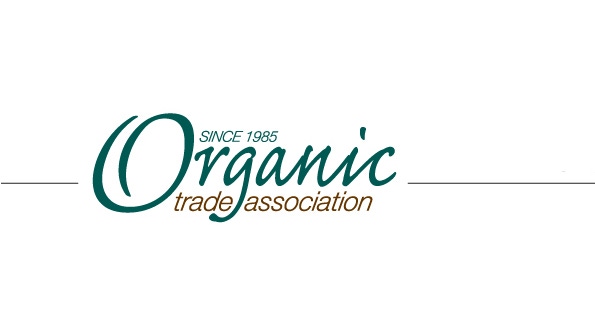The organic trade association and other supporters have set up committees to pursue funding the check-off program that the USDA killed in May.
September 7, 2018

The Organic Trade Association on Thursday announced a plan to move forward with a voluntary check-off program to fund industry-invested organic research, promotion and education.
The program would be collaboratively designed and implemented by organic stakeholders across the diverse organic-supply chain.
“The Organic Trade Association recognizes great demand for coordinated organic research and promotion, and the organic sector is ready to work together on innovative solutions that will have key benefits for organic,” said Laura Batcha, CEO and executive director for the Organic Trade Association.
“In today's political environment, organic companies and stakeholders are increasingly seeking private sector solutions, and the trade association is taking the lead in supporting these efforts,” Batcha said. “There is a critical need to educate consumers about organic, for more technical assistance to help more farmers transition to organic, and to loudly promote the organic brand. Responding to that need, we are launching a two-track effort to develop a voluntary governance approach and to also advance initiatives that will deliver immediate big wins for the organic sector.”
The trade association has formed a steering committee to coordinate and lead the efforts. The committee is charged with addressing the governance questions around a voluntary program to maximize good participation and decision making. It also will determine how to bring together multi-pronged private efforts to foster coordinated organic research and promotion.
Helping organic GRO
“These big ideas all live under the banner of GRO— shorthand for Generate Results and Opportunity for Organic,” Batcha said. “Everyone in our organic industry has a stake in eliminating consumer confusion, growing the market and building the organic brand, so we'll work collectively to ensure the future of organic.”
The steering committee established two subcommittees to guide the process—a governance subcommittee and an immediate programming subcommittee.
To gain the best thinking from stakeholders about how to maximize participation in a voluntary program and how to make the best decisions on investments, the governance subcommittee will open a comment period. The comment period should open this fall.
Members of the governance subcommittee are Laura Batcha, Organic Trade Association; Kim Dietz, senior manager for Environmental, Natural and Organic Policy, The J.M. Smucker Company; Marty Mesh, organic produce grower and executive director, Florida Organic Growers; Perry Clutts, organic dairy farmer and owner, Pleasant View organic dairy farm in Ohio; Melissa Hughes, chief mission officer and general counsel, Organic Valley; Gary Hirshberg, co-founder and chief organic optimist, Stonyfield Organic; Melody Meyer, president, Source Organic; and Grant Lundberg, CEO, Lundberg Family Farms.
The immediate programming subcommittee will identify programs to advance organic, then coordinate and fund those programs immediately. These prototype programs, which invest in critical needs, will serve as proven projects for investment when a formal voluntary program rolls out. Collaborative programs already are being developed and funded.
The Organic Trade Association is joining forces with Organic Voices and the group’s “It's Not Complicated” campaign to fund a nationwide message drive to reduce the confusion about organic. The goal for the campaign is to raise a minimum of $1 million for each of the next two years. Other projects getting underway will conduct in-depth consumer research on the most effective ways to reinforce the organic brand; advance a portfolio of research to fill in gaps for organic farmers and show the beneficial impacts of organic on environmental and human health; and provide the necessary funding for more organic extension agents across the country.
The association will release more details on its plans through a series of informational meetings at Natural Products Expo East in Baltimore, Maryland. For more information and details about opportunities to get involved, contact the Organic Trade Association.
The Organic Trade Association applied to the U.S. Department of Agriculture in May 2015 to consider an organic check-off program. The USDA in January 2017 opened the process for public comments. However, the USDA in May abruptly terminated the rulemaking process. More than 12,000 individuals and businesses— including thousands of organic farmers, ranchers and business stakeholders—had provided positive comments supporting the proposed program.
Source: Organic Trade Association
You May Also Like


